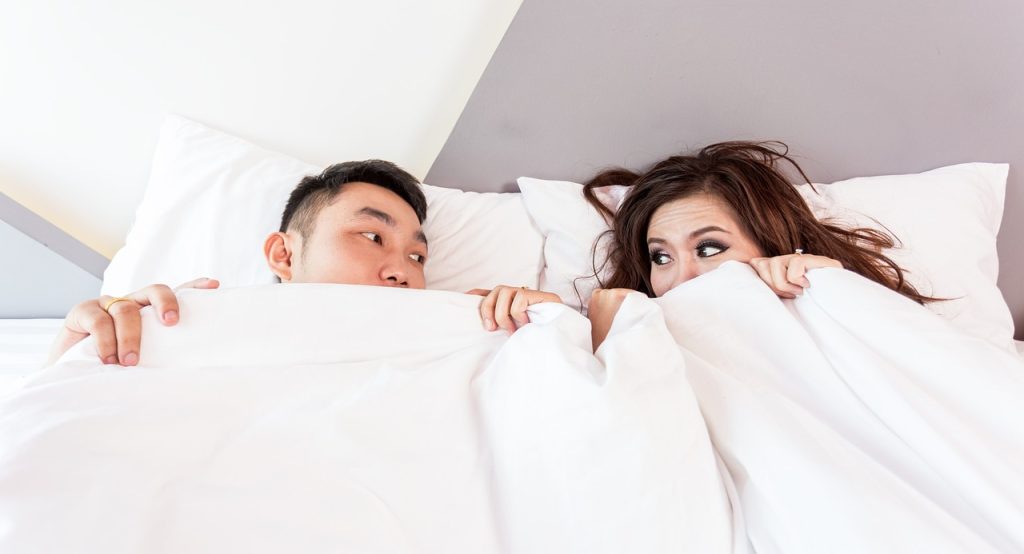I’ve spent years tossing and turning, staring at the ceiling. Believe me, I understand the struggle of how to sleep better. It can feel overwhelming. But it doesn’t have to be. I’ve found simple changes can make a big difference. This isn’t a magic cure, but a compilation of proven tactics for better sleep.
Let’s discuss what truly improves sleep quality.
Table of Contents:
- Your Bedroom: Creating a Sleep Sanctuary
- Mastering Your Sleep Schedule
- Lifestyle Adjustments for Better Sleep
- Preparing Your Mind for Sleep
- Additional Tips and Considerations
- How to Sleep Better: Your Personalized Approach
- Conclusion

Your Bedroom: Creating a Sleep Sanctuary
Start by creating a relaxing sleep environment. Think of your bedroom as a personal sleep sanctuary.
Invest in Sleep-Inducing Bedding
I used to think all mattresses were the same. Then I upgraded, and my sleep transformed. A supportive mattress and pillow align your spine, reducing aches that wake you up.
Soft, breathable sheets and blankets also enhance comfort. Choosing the right bedding can significantly impact your sleep.
Here at sleepundercover.com, we participate in affiliate programs and may earn a commission if you make a purchase, at no additional cost to you.
Optimize Your Sleep Environment for Deeper Rest
Make your bedroom like a cave: dark, quiet, and cool. Blackout curtains or a sleep mask block light, which encourages melatonin production.
Control noise with a fan, earplugs, or a white noise machine. Experiment to find what works for you.
A cooler room, around 65-68 degrees Fahrenheit, also promotes sleep. This ideal temperature allows your body temperature to drop naturally, a key part of the sleep-wake cycle.
Here at sleepundercover.com, we participate in affiliate programs and may earn a commission if you make a purchase, at no additional cost to you.
Mastering Your Sleep Schedule
Consistency and timing are vital for quality rest and overall sleep habits. Establishing a regular wake-up time helps regulate your body’s internal clock.
Stick to a Regular Sleep Schedule
If you’re groggy despite sleeping enough, you might be experiencing poor sleep quality. Determine how much sleep you need, then set a regular bedtime and wake-up time.
Even on weekends, try to maintain a consistent sleep schedule as much as possible. This will improve your sleep-wake cycle and help establish good sleep habits long term.
Avoid sleeping extra or long daytime naps to make it easier to maintain a regular sleep time.
Manage Daytime Naps for Better Sleep Hygiene
Long afternoon naps used to ruin my night’s sleep. Now I know there’s a science to napping.1 If you must nap, 20 minutes is ideal for a quick recharge without disrupting your sleep pattern.
Aim for early afternoon naps to avoid interference with your nighttime rest. Avoid long daytime naps, as they can make it harder to fall asleep later.
Lifestyle Adjustments for Better Sleep
Daily habits affect sleep quality. Stress management and a healthy life play significant roles in a good night’s rest.
Harness the Power of Daily Exercise and Sunlight
Daily exercise dramatically impacts sleep quality. If you have trouble sleeping, try regular physical activity.
I noticed deeper sleep after just a week of running. Natural light exposure also helps regulate your internal clock, promoting wakefulness during the day and better sleep at night. Spend time outdoors.
Sunlight helps regulate your circadian rhythm.2 If you work night shifts or lack sunlight, consider light therapy with your doctor.

Re-evaluate Your Caffeine and Alcohol Intake Before Bedtime
Caffeine and nicotine can disrupt sleep, even if consumed hours before bed. While they offer a temporary boost, they can ultimately hinder a good night’s sleep.
Avoid caffeine intake too close to bedtime. Prioritize healthy sleep habits instead of relying on stimulants.
Alcohol can disrupt later sleep stages. Cutting back on evening alcohol significantly improved my sleep. Avoid alcohol close to your bedtime to prevent disruption.
Preparing Your Mind for Sleep
Racing thoughts can keep us awake. Learning how to relax and wind down before bed is key.
Wind Down with Relaxing Bedtime Activities
Instead of screens, try calming activities before bed, such as taking a warm bath. Listening to nature sounds, light stretching, or breathing exercises can also help signal your brain to slow down.
A good pre-sleep routine could include preparing for the next day. Relaxation techniques before bedtime can help quiet your mind. Simple exercises can improve sleep quality and help you fall asleep easier.
Avoid big meals and caffeine too close to your expected sleep time. Mindfulness meditation and other relaxation exercises can also promote sleep.
Disconnect From Electronic Devices for a Better Night’s Sleep
Disconnecting from electronics before bed is crucial. The blue light from these devices suppresses melatonin production.3 It can also be tempting to stay up late scrolling. Avoid bright lights in the evening.
Turning off devices an hour before bed helps reduce difficulty falling asleep. Even a short break from screens can positively impact your sleep.

Additional Tips and Considerations
Here are a few more things I’ve learned along the way.
Keep a Sleep Diary to Track Patterns
A sleep diary can reveal patterns affecting your sleep. Note your energy levels throughout the day. It can also be beneficial to note your caffeine intake.
This helps you identify things that affect your ability to fall asleep and avoid napping too long. Keep a sleep diary and pay attention to how you feel.
Consult Your Doctor About Supplements and Concerns
Melatonin supplements can be helpful. Other supplements, like valerian or chamomile, may also improve sleep.
Always consult your healthcare provider before starting new supplements. This is especially important if you have persistent sleep issues or other health concerns. Talk to your healthcare provider about supplements for more personalized recommendations.
How to Sleep Better: Your Personalized Approach
There’s no one-size-fits-all solution to better sleep. What works for someone else may not work for you.
Improving sleep involves monitoring progress, adjusting lifestyle habits, and paying attention to your environment. Consider factors such as light exposure and wake-up time. If needed, talk to a sleep expert.
If you’re struggling, consulting a healthcare provider is always advisable. Your primary care physician can help assess any sleep disorders and suggest treatment accordingly. For underlying sleep disorders or ongoing sleep disturbances, contact your physician for assistance.
| Tip | Description |
|---|---|
| Optimize Your Sleep Environment | Create a dark, quiet, and cool bedroom. |
| Invest in Comfortable Bedding | Choose supportive mattresses, pillows, sheets, and blankets. |
| Maintain a Regular Sleep Schedule | Stick to consistent bedtimes and waking times, even on weekends. |
| Manage Daytime Naps | Keep naps short (under 20 minutes) and avoid napping late in the day. |
| Relax Before Bed | Engage in calming activities like reading or taking a warm bath. |
| Disconnect from Electronics | Avoid screen time at least an hour before bed. |
| Exercise Regularly | Engage in physical activity during the day to improve sleep. |
| Limit Caffeine and Alcohol Intake | Avoid caffeine and alcohol close to bedtime. |
| Keep a Sleep Diary | Track your sleep patterns and identify influencing factors. |
| Consult a Doctor | Seek professional advice for persistent sleep problems or underlying conditions. |
Conclusion
Improving sleep is a personal journey. It’s about understanding your body, habits, and environment.
By making lifestyle changes and optimizing your sleep routine, you can gain more control over your sleep. Addressing sleep hygiene, monitoring your diet and supplements, and adjusting your environment can significantly improve sleep quality. Keep a sleep diary and be honest with yourself.
This approach can empower you to achieve better sleep. Prioritizing sleep is vital for overall well-being. It supports your physical and mental health. Hopefully, these tips will help you on your path to better sleep and a healthier life. Good night’s sleep awaits.
Check out our other articles for the very latest Sleep Under Cover content.
- Lifestyle mediators of associations among siestas, obesity, and metabolic health.
- What Are Circadian Rhythms? Circadian rhythms are the physical, mental, and behavioral changes an organism experiences over a 24-hour cycle.
- Blue light from light-emitting diodes elicits a dose-dependent suppression of melatonin in humans.


